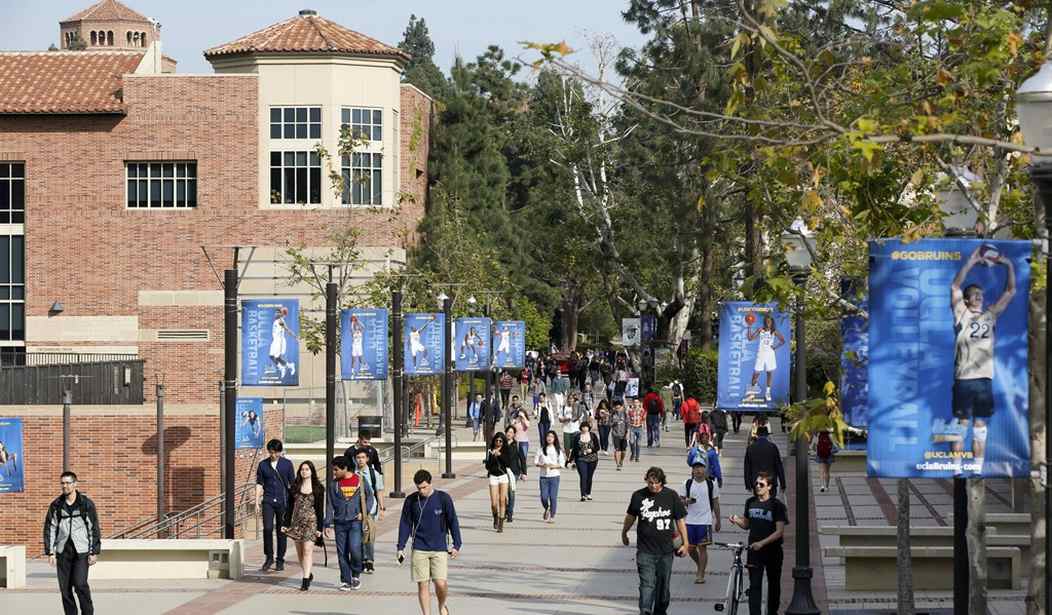Professor Yoel Inbar teaches psychology at the University of Toronto. Recently his long-time girlfriend who teaches psychology at a different university was offered a job by UCLA. Once it became clear her offer was solid she mentioned to the school that she had a partner who also taught psychology and asked if it was possible the school would consider hiring him as well. These kind of partner hires are not unusual in academia. UCLA asked Inbar to send his qualifications and next they set up a sort of job interview for him on campus.
That campus visit seemed to go very well overall but there was one thing that happened during the trip which seemed a bit odd in retrospect. It happened when Inbar was meeting with UCLA’s diversity issues committee.
At the end of the meeting, in which the committee asked standard questions about his approach to diversity in his teaching and research, Inbar said he had been asked about a December 2018 episode of [a podcast] Two Psychologists Four Beers.
In that episode, Inbar said that diversity statements “sort of seem like administrator virtue-signaling,” questioned how they would be used in a hiring process, and suggested “it’s not clear that they lead to better outcomes for underrepresented groups.”
The committee asked: Was he prepared to defend those comments now?
“To be honest, I wasn’t, because this episode is like, four and a half years old,” Inbar said on [a recent podcast called] Very Bad Wizards. But he explained his current stance: “The very short version is, I think that the goals are good, but I don’t know if the diversity statements necessarily accomplish the goals.”
The UCLA faculty members “seemed satisfied” with Inbar’s answer, he said. “Then one of them said, kind of almost apologetically, ‘Well, you know, we have some very passionate graduate students here, which is great, but what would you say to them if they were upset about this?’” Inbar said he didn’t know what he’d say beyond explaining his views, as he had to the committee.
Inbar returned home feeling confident that he was almost certainly going to get a formal job offer in a matter of days. Instead, a couple days later a letter signed by 66 psychology department grad students began circulating online. The letter demanded that the school not offer Inbar a job.
His comments were quoted in the student petition, which essentially confirms the very criticism Inbar was making of DEI statements: The students appear to take the view that opposition to DEI statements should in fact be grounds for nonemployment.
“Given the express priority of our university to consider DEI efforts and experiences in the faculty search and hiring process, we are adamant that the hiring committee enforce UCLA’s Equity, Diversity, and Inclusion Office message,” the petition concludes, “by electing to not extend a job offer to Dr. Yoel Inbar.”…
Whether the student petition caused the administration to back away from the hiring is unclear; UCLA did not respond to a request for comment. The Foundation for Individual Rights and Expression (FIRE) has attempted to obtain records relating to the hiring committee’s deliberations, but UCLA repeatedly delayed—and ultimately blocked—that move.
So, at the moment, there’s no concrete proof that the letter resulted in the decision not to offer Inbar a job but that’s certainly how it looks. Alex Morey from FIRE gave a statement to the Chronicle for Higher Education: “What we suspect may be happening here is that because Professor Inbar allegedly did not parrot the correct views on DEI and some students objected to that, he may have been discriminated against because of his views in the hiring process.” Morey added, “They can hold faculty to viewpoint-neutral type of criteria, objective standards, but they can’t say, ‘If you don’t pledge allegiance to our particular view on diversity, you can’t have a job.’”
The full letter was posted online. It seems these grad students dug through these old podcasts looking for ammunition.
Dozens of psych students signed this letter demanding UCLA not hire Dr. Yoel Inbar. After that, he didn't get the job offer he was almost certainly going to receive.
His main offense: expressing skepticism about DEI statements. In his words, "It is not clear what good they do." pic.twitter.com/piV6BwXUvh
— John Sailer (@JohnDSailer) June 28, 2023
If you want to hear Inbar tell the story from his perspective it’s here on the Very Bad Wizards podcast (scroll in about 43 minutes). As someone who has studied exactly this sort of behavior, Inbar had an interesting takeaway on the experience: “I understand how people feel that they have to protect a certain set of moral values and that they don’t want people around who threaten them. I would just say, often those moral instincts can mislead us into rushing to judgment,” he told CHR.








Join the conversation as a VIP Member